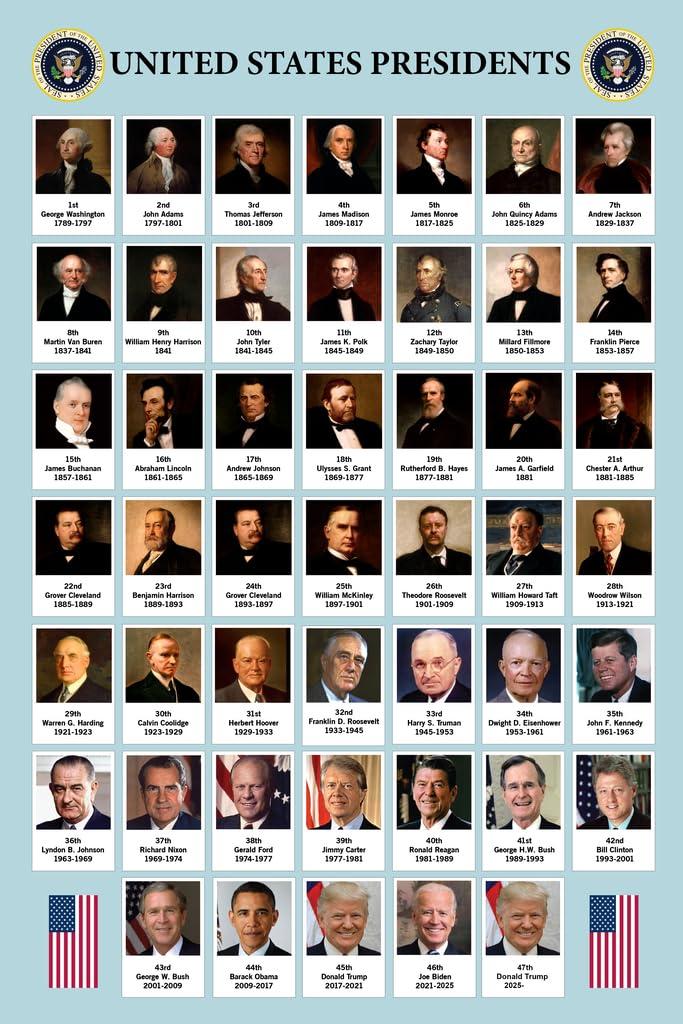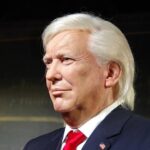As former President Donald Trump gears up for another presidential campaign, the intricacies of international diplomacy are becoming increasingly significant. The history of U.S. presidents illustrates that they often find themselves at pivotal moments where their decisions can influence not only national interests but also global peace and stability. This article explores the insights gleaned from past leaders—such as Theodore Roosevelt, Jimmy Carter, Bill Clinton, and Trump’s own initial term—who have navigated the challenging terrain of peace negotiations. By analyzing their successes and setbacks, we can uncover essential lessons that may guide Trump’s future foreign policy endeavors as he seeks reconciliation in an evolving geopolitical landscape.
Historical Insights: Diplomatic Approaches of Roosevelt and Carter
The diplomatic tactics utilized by Teddy Roosevelt and Jimmy Carter provide critical lessons for contemporary leaders. Roosevelt’s famous motto to “speak softly and carry a big stick” exemplified his ability to mediate international disputes effectively; his most notable achievement was brokering peace in the Russo-Japanese War. His legacy underscores the necessity of maintaining robust diplomatic relationships while being prepared to exercise military power when required. Key components of his strategy included:
- Direct Engagement: Roosevelt’s personal interactions with world leaders fostered trust.
- Strategic Partnerships: Cultivating alliances with influential nations bolstered America’s global position.
- Active Mediation: Proactively intervening in conflicts to promote stability.
Conversely, Jimmy Carter’s approach revolved around a commitment to human rights and moral diplomacy, highlighted by his role in facilitating the Camp David Accords. His strategy prioritized negotiation over aggression, demonstrating how dialogue can yield positive outcomes. Elements central to Carter’s methodology included:
- Emphasis on Human Rights: Ethical considerations were paramount in shaping foreign policy.
- Conflict Resolution Skills: His mediation efforts resulted in landmark agreements between adversarial nations.
- Long-Term Solutions: Advocated for sustainable resolutions rather than temporary fixes.
The Importance of Personal Diplomacy in Peacebuilding
Personal diplomacy has historically been crucial for achieving peace agreements and alleviating international tensions. Effective leaders understand that building relationships is vital; through direct engagement, they cultivate trust that transcends political rhetoric. For instance, Teddy Roosevelt leveraged his charismatic leadership style to engage with global figures during conflicts like the Russo-Japanese War—a feat recognized with a Nobel Peace Prize.
Similarly, both Jimmy Carter and Bill Clinton acknowledged that face-to-face interactions were essential for establishing rapport with foreign counterparts—laying groundwork for transformative agreements such as the Camp David Accords and Oslo Accords.
In today’s complex geopolitical environment, these historical lessons remain pertinent. Prioritizing active listening and empathy can help bridge seemingly insurmountable divides among nations. Leaders should focus on personal diplomacy by:
- Engaging Directly: Regular conversations clarify intentions while fostering collaboration.
- Cultivating Relationships: Building rapport enhances negotiation effectiveness.
- Employing Soft Power Tactics: Cultural exchanges humanize political disputes.
By integrating these strategies into their foreign policies, leaders create more conducive environments for lasting peace beyond conventional negotiation methods.
Learning from Experience: Insights from Trump’s First Term
Analyzing Donald Trump’s first term reveals important takeaways relevant to future diplomatic initiatives. His unique approach towards North Korea involved direct communication with Kim Jong-un—a tactic showcasing potential benefits but also underscoring the need for realistic expectations alongside comprehensive strategies moving forward.
To enhance future efforts at reconciliation or conflict resolution within this framework similar to previous administrations’, Trump might consider:
- Expanding Engagement Efforts: Involving various stakeholders including regional powers could strengthen initiatives.
- Balancing Diplomacy: Merging negotiations with strategic economic incentives may yield better results.
- Setting Clear Objectives: Establishing measurable goals will help track progress effectively.
The experiences gained during Trump’s earlier engagements highlight adaptability’s importance when navigating intricate geopolitical landscapes; notably controversial discussions regarding Israel-Palestine opened dialogues previously avoided by other administrations.
Summary Table of Presidential Peace Initiatives
| President | Notable Initiative | Key Strategy |
|——————-|—————————-|—————————————|
| Teddy Roosevelt | Treaty Ending Russo-Japanese War | Third-party mediation |
| Jimmy Carter | Camp David Accords | Personal diplomacy through retreats |
| Bill Clinton | Oslo Accords | Long-term negotiations |
| Donald Trump | North Korea Summits | Direct leader engagement |
Conclusion: Charting a Path Forward
In summary, navigating diplomacy has always posed challenges for U.S presidents who each bring distinct styles shaped by their experiences into office. The insights derived from past presidents like Theodore Roosevelt, Jimmy Carter, and Bill Clinton offer valuable guidance on balancing power dynamics necessary for achieving enduring peace agreements today.
As Donald Trump confronts an increasingly intricate geopolitical landscape ahead of him once again seeking office opportunities arise where he could apply these historical lessons effectively within his own framework—fostering collaboration while demonstrating genuine empathy toward multilateral efforts could significantly enhance his legacy concerning international relations moving forward.
Ultimately striving towards peaceful resolutions reflects not just leadership qualities but embodies humanity’s enduring hope toward creating a stable world order amidst ongoing challenges ahead; thus raising an important question—is he willing enough heed history’s teachings or carve out entirely new paths? The answer will undoubtedly shape future trajectories within global diplomacy itself as we move forward together into uncharted territories ahead!









